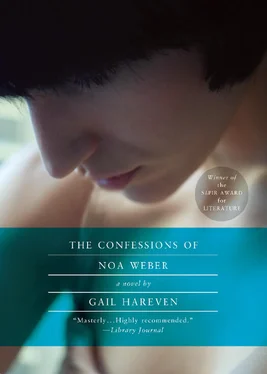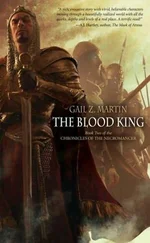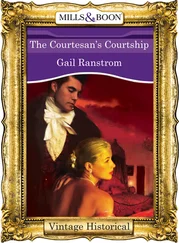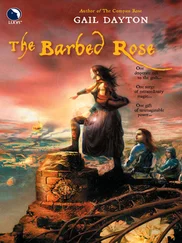“Yes, I think I did.”
“It’s no big deal.”
“What do you mean?”
“That it all seems very small to me.”
“It all seems small to you … if you say so. I remember things differently.”
“What do you remember?” Alek sighed and didn’t reply. “What? Tell me,” I turned around to face him. “What do you remember?”
“I think it was hard for you.”
“So what if it was hard? Maybe it wasn’t hard for me at all. Maybe that was exactly how I wanted it.”
“Really?” He examined me with narrowed eyes.
“Yes, really. Why are you laughing?” I asked, laughter in my voice too, and I sat down on the windowsill with my profile to him.
“You’re beautiful.”
“You don’t believe me.”
“Actually I do believe. That’s beautiful too.”
“What? What? What’s beautiful?” The click of a lighter, and no answer. I put my hand on the window pane, tilted my head slightly, and with three fingers blocked the river. “You’re wrong. It was never hard for me, not really,” I said and examined the new window picture, “and on Wednesday too, when we say goodbye and I get on the plane, it won’t be hard for me.”
“If it isn’t hard for you, good. I’m glad.”
I freed the river and hid the road. “Have you noticed that someone could shoot straight into the President’s residence from here?”
“There’s already been a shooting here. But in the opposite direction. During the August putsch a photographer was shot in the window here. What are you doing there?”
“Looking at things,” I answered like an intoxicated child. “You know what I think? I think I have a lot of strength. You know how much strength I have?”
“Enough to stop a bolting horse and enter a burning house.”
“You’re making fun again.”
“I’m not making fun. Nekrasov wrote it. He wrote it seriously.”
“Try me.”
“How?”
“I don’t know.”
“You want me to try your strength? That’s what you want?”
“Yes.”
The next movement looked like a response to my “Yes,” it was impossible to think anything else. It was close to three o’clock in the morning, and Alek got up and got dressed, and as he put the key to the room in his pocket he said, “I’ll be back. Don’t let anyone in.”
HOW FAR ARE YOU GOING WITH IT
The Moscow Alek was the same person, but nevertheless different. When he met me at the airport, at first glance he looked tired, and only afterwards, in the taxi, I realized that the eyelids which were beginning to droop a little gave him a new look of weariness or sad resignation, but that this deceptive expression was contradicted again and again by a lively smile, because Alek, at least during my visit, was as intoxicatingly alert as I was. Not only did he play the gentleman more attentively than ever — I already knew exactly what these gestures were worth — but from the moment he picked me up at the airport he made it clear in many little ways that, more than acting as my tour guide, he intended to be my bodyguard here. In the street he was careful to take my arm so that I wouldn’t slip on the ice. He tied the strings of my fur hat under my chin, carried my handbag, chose for both of us the moment to leap into traffic and cross the road. In addition to all this, he insisted, to my surprise, that I accompany him to all his meetings at the Journalists’ House, and to apartments steeped in the smell of smoke and wet old clothes, all of them either too cold or overheated. “I’m an egoist,” he said one night as we descended stairs stinking of cooking and urine in the dark, “maybe I shouldn’t have told you to come.”
“Why?”
“Nobody knows what could happen here.”
“I like not knowing,” I said.
“Really?”
“Really.”
“You’re like a little girl,” he said and pressed me against the wall, laughing and strangely excited. And when he removed his lips from my neck he lifted his head, looked up as if he was searching for something, and added: “This smell, I didn’t think I could get used to it again. We had a whole life in stairwells like these.”
“So what did they say could happen here?” I asked as he led me downstairs. He translated very little for my benefit during the interviews. “What could happen?” He replied: “History could repeat itself, or not repeat itself, and both possibilities are frightening. Moscow is paradise compared to what’s happening in other places. Already people have no gas, no food, no salaries, no pensions, no nothing.”
I was completely dependent on him, dependent on him physically as I had never been anywhere else. I needed him in order to ask for another cup of lousy coffee at the hotel, in order to open the window I was unable to budge, to cross the street safely, even to understand the dialing instructions and call Hagar in Israel and go on lying to her — when he summoned me to him, I lied to Hagar and told her that I had been invited to Moscow to lecture on behalf of the Jewish Agency, and I stuck to this story on my subsequent visits too. I have to admit that I enjoyed the helplessness, the total dependence on Alek, and for some perverse reason I even enjoyed the fear. In February of 1993 normal people didn’t go to Moscow as tourists, and it didn’t even occur to Alek to take me to any of the tourist sites. Under the splendour of the snow there were filthy tenements and palaces, patched with dark squares of boarded-up windows. Passive lines of people stood in the clouds of steam at the entrances to the Metro; bookshelves, clothes hangers, shoe closets, kitchen cabinets, glass-fronted sideboards were emptied for sale. In all of Alek’s meetings the warnings were repeated: don’t go there, don’t let her go, don’t do this, that, or the other thing. Despite his Russian and his connections, they lumped us together as naive foreigners who needed to have the dangers pointed out to them.
At night I had the recurrent fantasy that the airport was closed, that the television screen was blacked out, that the silence meant the telephones were disconnected and tanks were blocking the roads. Alek: “The screen won’t go black. You’ll know that it’s happening when the television starts giving us Swan Lake.”
What would I do if he was torn away from me? If he went out to get something or clear something up and didn’t come back, if he was thrown bleeding onto a street corner, if he lay with his body broken in a hospital or a jail, if he was sent to the infinite expanses of the East? I doubted I would survive. Or perhaps I would survive but I would never return to the world. I would be tossed by the tidal wave of history into some other mutation. I would wander the Metro platforms, a demented beggar, mumbling my pleas in broken Russian.
Alek didn’t leave me alone for a minute, until “You want me to try your strength?” when he got up and went out.
I think about the dramatic “Try me” that came out of my mouth and I fill with self-loathing. What feeling was I dramatizing there? And what response was I longing for? For him to say to me, “Get thee out of thy country, and from thy kindred, and from thy father’s house, unto a land that I will show thee”? For him to test my love with some sadistic trick? To make me wait and wait for his return, until I sang over the domes of Moscow, “If crying is forbidden I will not cry”? Now it occurs to me that I identified cruelty with testing, and confused being tested with being chosen. He would choose me in order to try me. He would try me and then I would be the chosen one. Look at me, winged and electrified, I can do anything. I’m stupid Noa Weber, a chosen people of one woman.
Alek came back after fifteen minutes. “Aren’t you cold yet?” and he carried me to bed and lay me down and stroked me until my whole body arched, but he didn’t get undressed. Twenty more minutes passed, maybe half an hour, until there was a knock at the door.
Читать дальше












